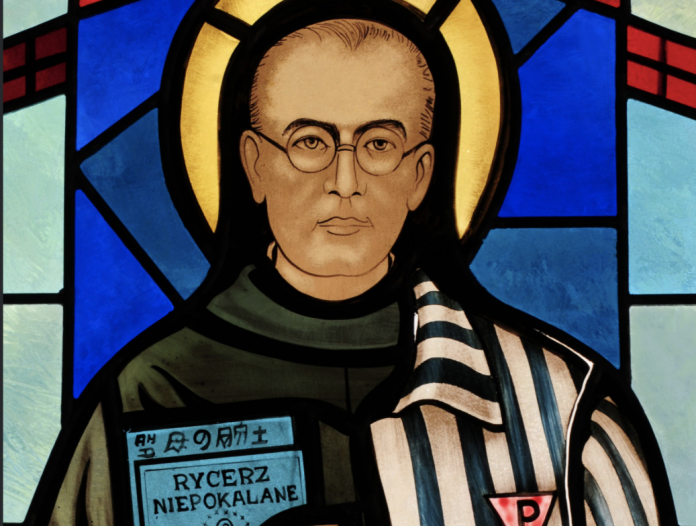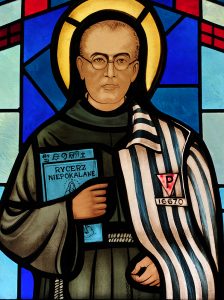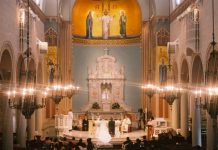
BARBARA YOFFIE
Maximilian Kolbe was a Franciscan priest and missionary. His great love for the Blessed Virgin Mary inspired his work and spirituality. During the Second World War, he was arrested and sent to Auschwitz, a Nazi concentration camp. The priest, now prisoner, secretly ministered to his fellow prisoners. He heard confessions, shared his food, and offered words of hope and encouragement.
The special graces of the Sacrament of the Anointing of the Sick give strength and peace to people who are seriously ill or dying. Maximilian was an instrument of God’s healing presence amid the horrors of war.
Maximilian Kolbe’s life
 MAXIMILIAN KOLBE 1894–1941
MAXIMILIAN KOLBE 1894–1941
Feast day: August 14
Patron saint of prisoners, drug addicts, journalists, and the pro-life movement
Maximilian was a bold evangelizer. He established a media complex in Poland and published newspapers, magazines, and books about the Catholic faith and devotion to Mary. Missionary work led him to Japan where he founded a monastery, a seminary, and a second media complex. Poor health forced his return to Poland in 1936.
Arrested for sheltering war refugees in his monastery, Maximilian was sent to Auschwitz. Following an apparent escape, ten prisoners were sentenced to the starvation bunker. He voluntarily took the place of one of the condemned men who had a family. As each man slowly died, Maximilian prayed and comforted them. After two weeks, Maximilian was killed by lethal injection.
Pope John Paul II canonized Maximilian Kolbe, declaring him a “martyr of charity” on October 10, 1982.
Saint activities
■ Maximilian always thought of others before himself. Consider ways you can put other people’s needs before your own.
■ Honor Mary by praying the Rosary, the Hail Mary, or the Memorare.
■ Pray that missionaries will be successful in their work of spreading the gospel.
The Sacrament of Anointing of the Sick
The Church continues Jesus’ saving work of healing mind and body through the Sacrament of Anointing of the Sick. The celebration of the sacrament consists of special prayers, laying on of hands, and anointing the forehead and hands with holy oil.
Administered by a priest or bishop, the Anointing of the Sick may be celebrated individually or communally and can be received more than once. Through the grace of the Holy Spirit, the sick are strengthened spiritually to bear the trials of their illness.
Jesus offers the sick and suffering his love and peace in the Anointing of the Sick.
Sacrament activities
■ The Parable of the Good Samaritan (see Luke 10:29-37) shows how we share in the healing ministry of Jesus. How do you reach out to others?
■ Read about the lives of St. Damien of Molokai and St. Marianne Cope. How did they share the love and peace of Jesus with people who suffered?
Take-home activities
■ Visit the sick or elderly in your community. Provide a simple meal, a cheerful note, or offer assistance with household chores.
■ Maximilian is the patron saint of the pro-life movement. Join pro-life activities in your parish and give witness to the sanctity of life.
BARBARA YOFFIE, MRE, is a director of religious education and saint enthusiast. She is the author of the Saints and Me! series from Liguori Publications.
PHOTO: NANCY BAUER/SHUTTERSTOCK
This article was originally published in Catechist, February 2020.




